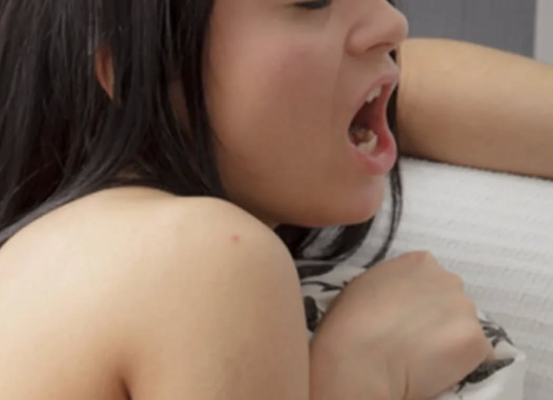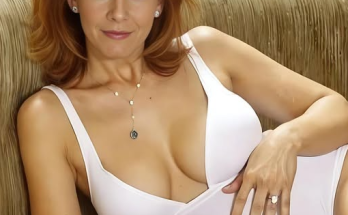
Sydney Sweeney Faces Scrutiny Over “No-Makeup” Photos — But Fans Fire Back at the Critics
In the age of filtered selfies and flawless red carpet appearances, authenticity can be a risky act of rebellion — and Sydney Sweeney just found herself at the center of that conversation. The Euphoria and Anyone But You star, known for her dazzling smile and radiant confidence, recently shared a series of “no-makeup” photos that sent social media into overdrive. While many fans praised her for showing a more natural side, a loud minority of critics accused her of not being “really makeup-free” — igniting a debate that reveals far more about society’s unrealistic beauty standards than about Sweeney herself.
A Moment of Vulnerability in a Filtered World
It started innocently enough. Sydney Sweeney, 28, posted a few candid photos to Instagram — her hair undone, her skin glowing in natural light, and a relaxed smile replacing the polished perfection of her usual public appearances. The caption was simple and self-assured, something along the lines of “just me today.”
Within hours, the images garnered millions of likes and thousands of comments. Fans flooded her page with praise: “You look beautiful!” “Finally, someone real in Hollywood!” “Thank you for showing what natural beauty looks like!”
But as often happens in the social media sphere, positivity didn’t last long. A wave of skeptical commenters began dissecting the images, zooming in on her eyelashes, cheeks, and lips, claiming she was “definitely wearing something.”
One user wrote, “No makeup? Maybe no heavy makeup, but that’s definitely tinted moisturizer and lip gloss.” Others accused her of faking relatability. The tone quickly shifted from admiration to accusation, as though showing even a hint of natural skin tone had somehow broken an unspoken rule.
The Double Standard Women Can’t Escape
The backlash underscored an all-too-familiar double bind faced by women in the public eye — and really, by women everywhere. If celebrities wear full makeup, they’re “fake.” If they go barefaced, they’re “unpolished.” If they post “natural” photos that look good, they must be lying about it. And if they post unretouched photos that show imperfections, they’re “letting themselves go.”
For Sweeney, who’s been open about her experiences with body image and self-esteem, this isn’t unfamiliar territory. In previous interviews, she’s talked about how growing up in the spotlight made her hyperaware of her appearance. “Everyone has an opinion about how you look, what you wear, even how you smile,” she once said. “It took me a long time to learn that you can’t please everyone — and you shouldn’t try.”
This latest controversy highlights just how impossible those standards remain. The expectation isn’t merely to look good — it’s to look effortlessly good, but only in ways that conform to the viewer’s personal definition of “authentic.”
Fans Step In: “She Doesn’t Owe You Perfection”
Fortunately, not everyone joined the pile-on. In fact, the overwhelming majority of Sweeney’s fans quickly rallied to her defense. Many took to social media to call out the hypocrisy of the criticism.
One fan wrote on X (formerly Twitter): “Sydney Sweeney posts natural photos and gets attacked for not being ‘natural enough.’ What do people even want? A celebrity to have acne, dark circles, and bedhead before they count as real?”
Another said, “She’s human. She’s allowed to wear moisturizer or lip balm. That doesn’t mean she’s faking anything.”
Even fellow actors chimed in, supporting Sweeney’s choice to share a more vulnerable version of herself. One actress commented, “Women are allowed to look however they want. Full face of makeup, no makeup, or something in between — it’s their choice. That’s what empowerment really means.”
It was a powerful reminder that while the internet can be cruel, it can also be a space for solidarity — especially among women who recognize the damaging cycle of beauty policing that persists online.
A Deeper Conversation About “Natural Beauty”
The incident sparked a broader conversation about what “no makeup” actually means in 2025. In an era of skincare serums, tinted sunscreens, lash lifts, and lip stains, the line between “made up” and “barefaced” has blurred. What many people call a “no-makeup look” still involves some form of self-care or enhancement — but that doesn’t make it dishonest.
Experts in beauty and media psychology weighed in, noting that the obsession with “authenticity” on social media often becomes its own form of performance. “We’ve created this paradox,” one cultural critic explained. “We demand that women look effortlessly beautiful, but we also want to see proof that they’re not trying. It’s an impossible expectation — and it’s deeply unfair.”
For Sydney Sweeney, whose career has thrived partly because of her openness and vulnerability, the backlash likely felt personal. Yet in many ways, her post achieved something meaningful: it exposed how fragile the concept of authenticity has become in the digital age.
The Pressure of Perfection in Hollywood
Sweeney’s experience is just the latest example of how female celebrities are constantly scrutinized for their appearance, even when they’re doing something as simple as being themselves.
Hollywood has always been a double-edged sword for women — rewarding beauty while punishing the natural aging and imperfection that come with being human. In recent years, actresses like Florence Pugh, Selena Gomez, and even Jennifer Lawrence have faced similar criticism for daring to appear makeup-free or unfiltered.
Each of these incidents sparks outrage, defenses, and then — inevitably — silence, until the next woman becomes the target. The cycle reveals a deeper societal discomfort with women owning their image on their own terms.
Sydney Sweeney’s decision to share those photos wasn’t just about aesthetics; it was about control. In an industry where every public moment is curated, she chose to show herself as she wanted to be seen — no studio lighting, no stylists, no airbrushing.
And that, in itself, is an act of quiet rebellion.
The Role of Social Media: Empowerment or Trap?
Social media has given celebrities direct access to fans — and vice versa. For someone like Sweeney, who built much of her fame on connecting with audiences through authenticity, that connection can be both a gift and a burden.
Platforms like Instagram reward engagement, but they also magnify criticism. Every post becomes a referendum on appearance, morality, and relatability. The same people who demand “realness” are often the first to tear it apart.
Still, Sweeney’s post — and the ensuing discussion — may help reshape how people define beauty online. By refusing to conform to an unattainable version of “barefaced,” she highlighted the absurdity of the standard itself.
Redefining Confidence
In the days following the controversy, Sweeney didn’t issue a defensive statement or delete her photos. Instead, she quietly continued posting — laughing on set, posing with friends, living her life. That silence spoke volumes.
Her confidence in moving forward suggested a woman who knows her worth and refuses to be defined by the fickle approval of strangers. And for many fans, that was the most empowering message of all.
As one viral comment summed it up: “Sydney Sweeney just reminded us that confidence doesn’t come from being perfect — it comes from being unapologetically you.”
The Bigger Picture
The debate over Sydney Sweeney’s “no-makeup” photos isn’t really about makeup. It’s about control, perception, and the exhausting demand for women to perform authenticity to please an audience. It’s about how society still polices female beauty under the guise of “honesty.”
Sweeney’s decision to embrace her natural look — however she defines it — shouldn’t require justification. It’s a reminder that being “real” isn’t about what’s on your face, but about owning your image without apology.

